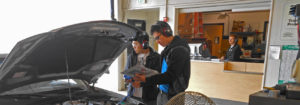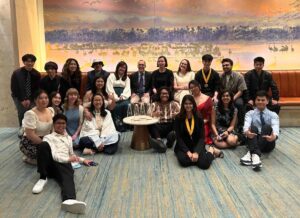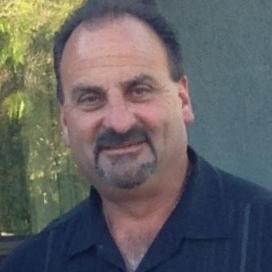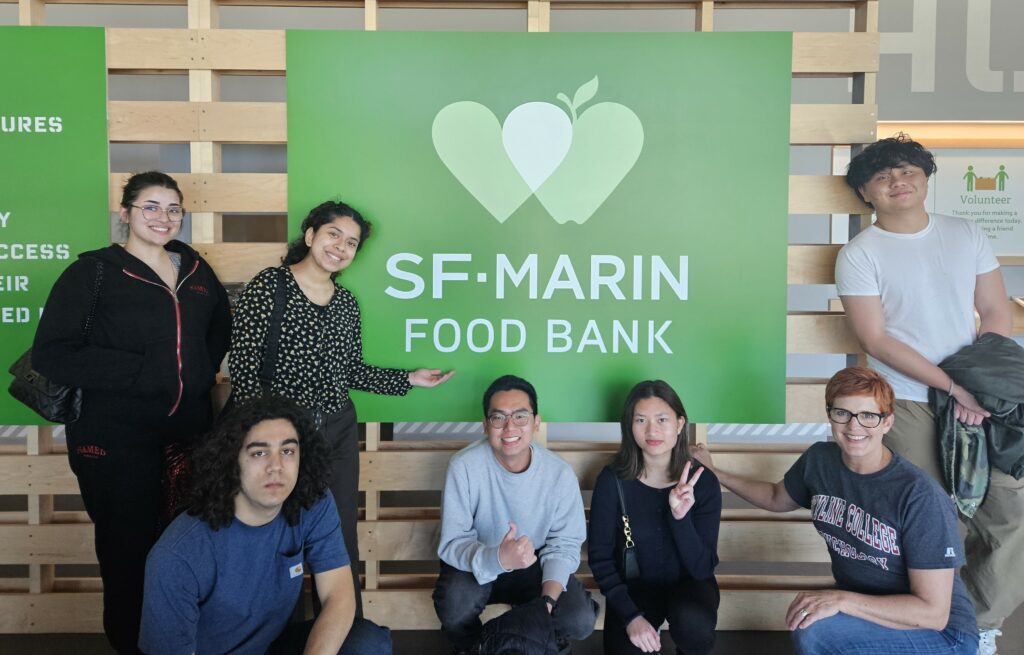 Skyline College earned Strong Workforce Stars recognition in the Advanced Transportation and Renewables sector for its Automotive Technology program; 71% of students who participate in this program attain the regional living wage, and 100% of students who participate report securing a job in their field of study.
Skyline College earned Strong Workforce Stars recognition in the Advanced Transportation and Renewables sector for its Automotive Technology program; 71% of students who participate in this program attain the regional living wage, and 100% of students who participate report securing a job in their field of study.
Skyline College attributes the success of its Automotive Technology program to effective relationships with local high schools, community centers, local businesses and its strong advisory board. Over the years, the program has benefited from strong support from the Chancellor’s Office, the San Mateo County Community College District Board of Supervisors, Skyline College’s own administration, and the division dean. This support translates into a financial budget that allows it to be what program leaders describe as one of the best-equipped automotive programs — both technically and mechanically.
The college maintains three buildings dedicated to the Automotive Technology program (alongside one additional shared building), affording the program six classrooms, one computer lab, two bench overhaul labs and 20 service stalls. Over the years, the program has also partnered with several automotive manufacturers and currently enjoys a collaboration with Subaru of America and Audi of America. Through these partnership and private donations, Skyline College’s Automotive Technology program has procured a fleet of 90 vehicles ranging in age from the mid-1980’s to 2017, providing students with a wide variety of vehicle technology on which to learn.
Additionally, program leaders note the impact of their curricular and pedagogical approach on students’ preparation. Through involvement, North American Council of Automotive Teachers (NACAT), California Automotive Teachers (CAT), National Automotive Technicians Educational Foundation (NATEF), Automotive Service Excellence (ASE) and Mobile Air Conditioning Society (MACS), Skyline College is known nationwide and worldwide as having a premier automotive training program, and is able to keep its training aligned with industry expectations. Specifically, the program conducts long classes so students can have extensive hands-on training that infuses innovative teaching techniques and advanced critical-thinking activities.
Every semester, the program’s students are immersed into a full educational load (15 credit units) focused on one automotive subject matter. This approach translates into 179 hours of direct experience, combined with 179 hours of theory and critical thinking preparation.
In turn, over the course of the program’s three years, each student receives 2,148 hours of combined learning encompassing key industry requirements including specific ASE automotive areas and California Smog certification.
Lastly, the entire program staff biannually attend professional development training in automotive technology and in dynamic teaching pedagogy techniques.
Sourced from Press Release






